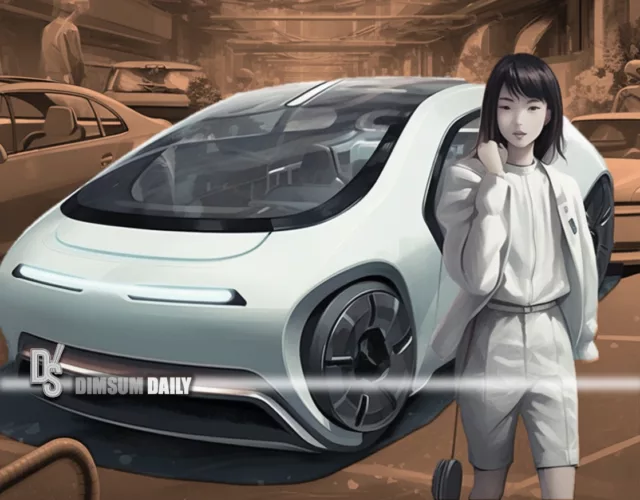
28th April 2025 – (Shanghai) The Shanghai International Automobile Industry Exhibition, better known as Auto Shanghai 2025, has once again cemented China’s position as the epicentre of the global automotive industry. This year’s event, held at the sprawling National Exhibition and Convention Center, showcased the relentless innovation and ambition of Chinese automakers, who are not just leading the electric vehicle (EV) revolution but redefining the future of mobility.
At Auto Shanghai 2025, the contrast between Chinese automakers and their global counterparts was striking. While legacy brands like Toyota, BMW, and Volkswagen leaned heavily on nostalgia, emphasizing craftsmanship and their storied histories, Chinese companies such as XPeng, NIO, and BYD pushed the boundaries of technology. XPeng unveiled its latest AI foundation model, designed to interpret complex driving conditions, alongside a humanoid robot named PX5, standing 178 centimetres tall and capable of expressive motions. This integration of robotics and automotive technology signals a future where cars, robots, and smart ecosystems coexist seamlessly.
NIO, another standout at the event, showcased its flagship ET9, which “danced” to music to demonstrate its advanced suspension system. CEO William Li highlighted the Onvo L90’s unique features, including a trunk designed to double as a fishing seat—a nod to the company’s focus on lifestyle integration. These innovations highlight a broader trend: Chinese automakers are not just building vehicles; they are creating experiences that resonate deeply with consumers.
In 2025, China’s electric vehicle market continues to dominate globally, with new energy vehicles (NEVs), including battery electric vehicles (BEVs) and plug-in hybrids (PHEVs), accounting for nearly half of all passenger vehicle sales. Domestic players like BYD, NIO, XPeng, and Geely are at the forefront, pioneering advancements in battery technology, smart driving systems, and global expansion strategies.
BYD, for instance, has introduced a charging system that adds 470 kilometres of range in just five minutes, addressing one of the most significant barriers to EV adoption: range anxiety. Xiaomi, better known for its electronics, has entered the fray with its luxury SUV, the SU7, which outperforms Western models in both electric and internal combustion engine (ICE) categories. These developments highlight how Chinese automakers are not only competing with their international peers but also surpassing them in key areas.
The rise of Chinese EVs has not gone unnoticed globally. While Western automakers and politicians grapple with the transition to electrification, China has embraced it as a pathway to technological and industrial dominance. The Trump administration and European policymakers have rolled back EV subsidies and weakened emission reduction targets, a move that contrasts sharply with China’s aggressive push for electrification. This divide is evident in the market share numbers: EV registrations in Thailand more than quadrupled in 2023, driven largely by Chinese brands. Similarly, Brazil saw a nearly threefold increase in EV adoption, again with Chinese automakers leading the charge.
China’s success is not just about technology; it is also about strategy. The country’s automakers are increasingly tailoring their vehicles for diverse international markets. SAIC Maxus, for example, has adapted its pickups to suit regional needs, enhancing suspension for Latin America’s rugged terrain and upgrading cooling systems for the Middle East’s scorching temperatures. NIO has shifted from direct sales to local partnerships, planning to enter 25 countries and regions this year.
This global expansion is bolstered by China’s robust domestic ecosystem. The country’s EV industry is driving innovation in batteries, fast charging, 3D mapping, smart connectivity, and AI-enabled automation. This sophisticated techno-industrial framework provides a solid foundation for futuristic products, including autonomous vehicles and flying cars.
Meanwhile, Fitch Ratings has added a nuanced perspective to the discussion, highlighting the resilience of China’s automotive market despite mounting challenges. In a report published today, Fitch noted that China’s retail car market is expected to grow in the low single digits for the year, supported by generous consumer incentives and ongoing price competition. However, the report also cautioned that fierce competition and a structural shift toward lower-end models are likely to drive down average selling prices, squeezing margins for automakers. The new energy vehicle (NEV) segment, which includes battery electric vehicles (BEVs) and plug-in hybrids (PHEVs), continues to expand, accounting for 47% of total sales in the first quarter of 2025. While China’s domestic market remains robust, Fitch warned of potential headwinds in international markets, particularly due to increasing protectionism and tariffs on energy-storage batteries, which could impact Chinese exporters in the months ahead.
In addition, the tariff war between the U.S. and China has created headwinds for Chinese automakers, particularly in their efforts to penetrate Western markets. Fitch Ratings noted that while direct impacts from U.S. tariffs on Chinese EVs may be limited, demand shocks and increasing protectionism in other markets pose significant risks. Additionally, Chinese battery manufacturers are likely to face more substantial impacts from tariffs on energy-storage batteries compared to EV batteries.
Despite these hurdles, China’s EV industry continues to thrive. In the first quarter of 2025, domestic new car retail sales in China rose by 5.9%, fuelled by extended government subsidies and aggressive price competition. The NEV segment accounted for 47% of sales, with affordable battery electric vehicles and plug-in hybrids gaining market share at the expense of higher-priced models.
In the coming years, the global automotive landscape will be shaped by China’s ability to sustain this momentum. With its technological innovations, strategic market expansions, and relentless focus on consumer needs, China’s EV industry is not just unstoppable—it is defining the future of mobility.








